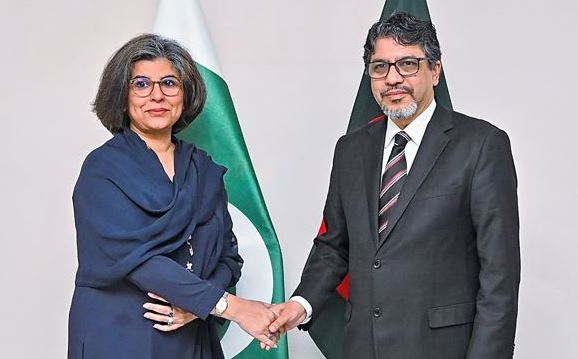In a powerful dual-pronged diplomatic stance, Dhaka on Thursday delivered two sharply-worded messages to its heavyweight neighbors — Islamabad and Delhi — underscoring Bangladesh’s renewed assertiveness on historical justice and minority rights in the region.
The timing was symbolic.
The messages were delivered on Mujibnagar Day (April 17), commemorating the formation of Bangladesh’s government-in-exile in 1971 following its declaration of independence from Pakistan, which then operated from India for the next nine months during the Liberation War
To Pakistan: A demand for atonement and dues
In the first high-level bilateral engagement in 15 years, Bangladesh called on Pakistan to issue a formal apology for the 1971 genocide and to settle $4.32 billion in outstanding financial claims.
Led by Foreign Secretaries Md Jashim Uddin of Bangladesh and Amna Baloch of Pakistan, the Foreign Office Consultations (FOC) covered both historical grievances and future cooperation. Bangladesh highlighted issues such as repatriation of stranded Pakistanis and misallocated cyclone relief funds. While Islamabad showed willingness to stay engaged, it made no public comments.
The two sides also discussed trade, climate action, education, and direct connectivity, with Pakistan’s Deputy Prime Minister Ishaq Dar scheduled to visit Dhaka later this month — the first such visit in over a decade.
To India: A stern protest over minority attacks
Meanwhile, Dhaka rebuked India for allegedly implicating Bangladesh in communal unrest in Murshidabad, West Bengal.
Interim government spokesman Shafiqul Alam stated that the government “strongly refutes” any such claims and condemned the recent attacks on Muslims during protests against the Waqf (Amendment) Act.
Alam urged both the Indian central and West Bengal governments to ensure full protection for the minority Muslim population. The protests — which turned violent in several districts — have raised regional concerns about religious freedom and communal harmony.
Together, the twin messages mark a rare moment where Bangladesh has publicly taken both regional powers to task — demanding justice from the past and accountability in the present.


